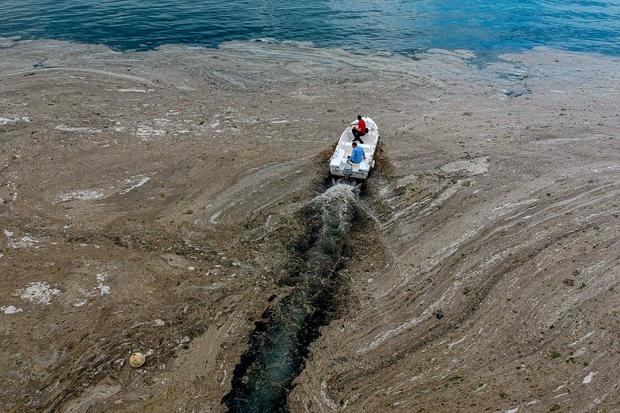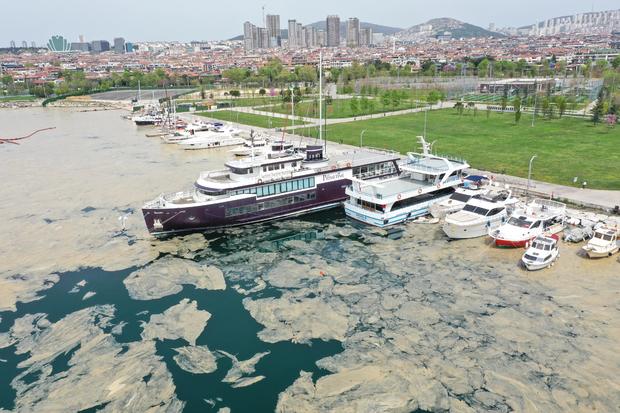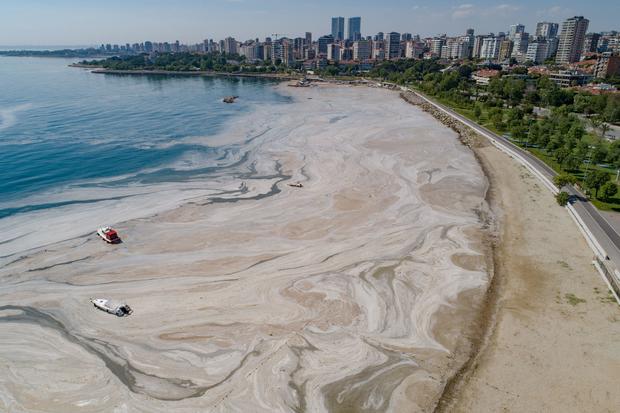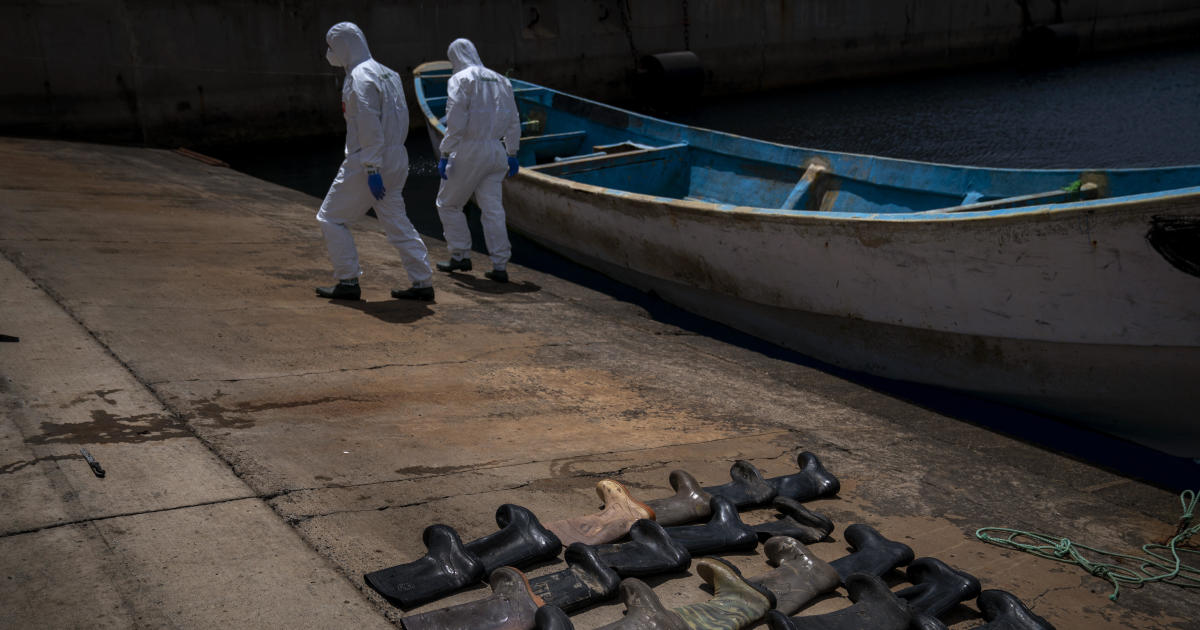Turkish leader vows to tackle outbreak of "sea snot" blamed on pollution and climate change
Istanbul — Turkey's president has promised to rescue the Marmara Sea from an outbreak of "sea snot" that is alarming marine biologists and environmentalists. A huge mass of marine mucilage, a thick, slimy substance made up of compounds released by marine organisms, has bloomed in Turkey's Marmara, as well as in the adjoining Black and Aegean Seas.
Turkish President Recep Tayyip Erdogan said on Saturday that untreated waste dumped into the Marmara Sea and climate change had caused the sea snot bloom. Istanbul, Turkey's largest city with some 16 million residents, and five other provinces, factories and industrial hubs border the sea.
Marine mucilage has reached unprecedented levels this year in Turkey. It is visible above the water as a slimy grey sheet along the shores of Istanbul and neighboring provinces. Underwater videos showed suffocated coral covered with sea snot.
Erdogan said he instructed the Ministry of Environment and Urbanization to coordinate with relevant institutions, municipalities and universities. Teams are inspecting waste water and solid waste facilities, along with other potential sources of pollution, he said.
"We will save our seas from this mucilage calamity, leading with the Marmara Sea," Erdogan said. "We must take this step without delay."
Marine experts say that human waste and industrial pollution is choking Turkey's seas. They say the rise in water temperatures from climate change is contributing to the problem.






